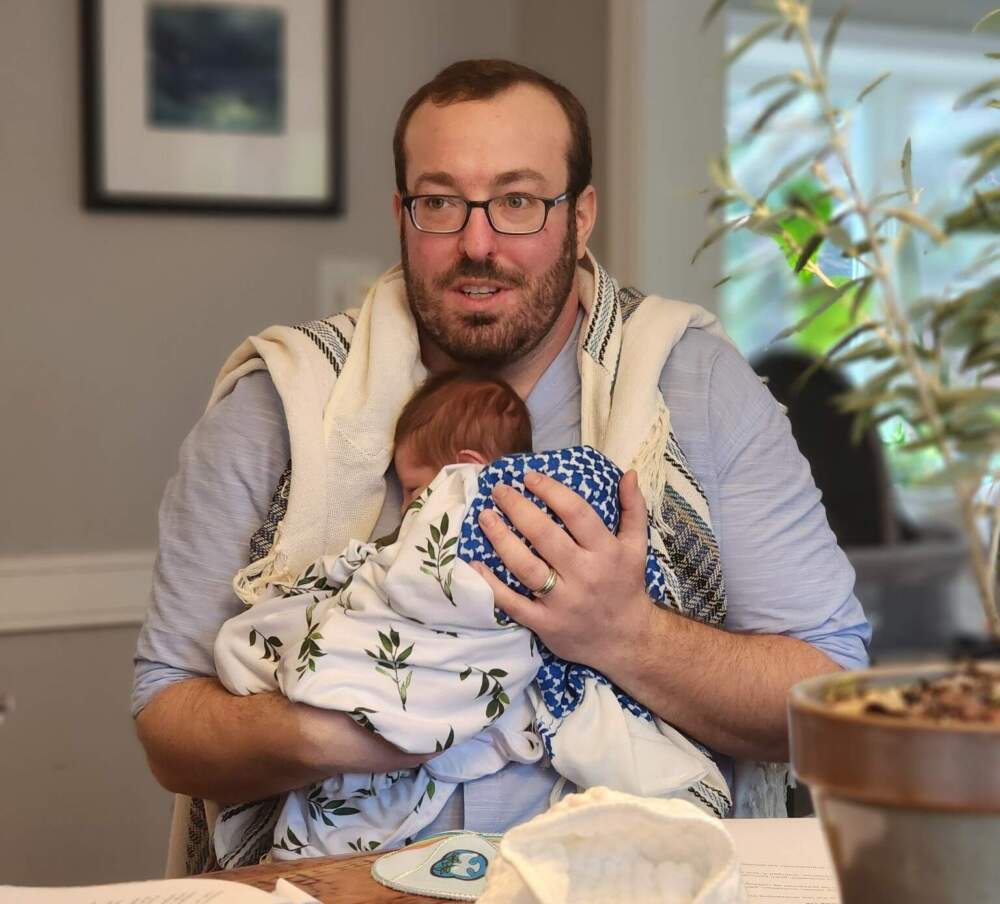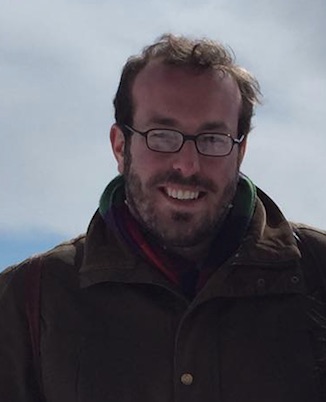Advertisement
Commentary
I believe we can 'heal this world, together' — that is what I'll teach my son

In February 2023, I became a father. In the weeks and months before my son was born, I contemplated the values that I wanted to instill in him. I wanted to articulate the ethos that guides my life, and offer it to my child. This was no idle reflective exercise — my aim was to arrive at some clarity and to give him some guideposts for my son’s own journey.
Shortly after returning from the hospital after his birth, my wife and I hosted family and close friends at our son’s Hebrew naming ceremony. The gathering was small and sacred, intimate and idiosyncratic in our own unorthodox interfaith and intercultural way. I was raised in an interfaith home and my parents offered a model for weaving different traditions together, harmoniously. I knew that their model of blending and exchange had to be the basis of my son's upbringing. So, in between the songs and prayers that day, I shared with the people closest to me the values that are foundational to how we’ll raise our child.
The core value I shared is the fusing of the Jewish ethos of tikun olam -- to heal the world — with the Arabic concept of ma ba’ath -- togetherness. Tikun olam ma ba’ath: healing the world together. Cradling my newborn son in my arms, I looked at my loved ones and named this intention: I will show my son how to heal the world together, by binding Jewish and Arabic concepts and making them inseparable in our lives.
I wanted to welcome my son into a home that valued crossing borders and recognizing the humanity and dignity of the “other.” I wanted compassion and an affinity for cultural exchange to be baked into his upbringing.
The core value I shared is the fusing of the Jewish ethos of tikun olam — to heal the world — with the Arabic concept of ma ba’ath — togetherness.
I built little reminders of this blending of Jewish and Arabic values into our daily routines.
Tikun olam ma ba’ath was not simply a lovely sentiment. It had to permeate our lives in small ways, to manifest itself in profound ways.
To that end, I became abba baba — combining the Hebrew and Arabic words for father — rather than, simply, dad. Every morning, I lifted my son from his crib and, looking him in the eyes, greeted him with a jovial boker tov followed by an equally upbeat sabah al-khayr. Throughout the day, I’d hold him in my arms and, unprompted, announce shalom, salaam -- wishing my happy child peace in Hebrew and Arabic.
Since October 7th and throughout the continued plight in Gaza and Israel, the spirit of tikun olam ma ba’ath has felt tragically fleeting in the world. Instead, there is anguish and suffering. Traumatized peoples, fearful of their safety and welfare, are in the throes of pain and despair. This is a humanitarian crisis unlike any I have ever witnessed. And it’s breeding a crisis of compassion around the world.
Advertisement
As a father in an interfaith home where Jewish and Arabic cultural influences are revered, I know that my parenting style will not end the war today. It will not bring hostages home. It will not end Palestinian displacement in Gaza. It will not stop the rhetoric that is breeding polarization and social fragmentation. But this is what I can offer my son, so that he continues to be made whole in a broken world that needs healing.
I make my son whole each time we attend a recital by the Center for Arabic Culture’s children’s choir. Each night when we sit down and read picture books about interfaith friendships between Jews and Arabs, such as “Yaffa and Fatima, Shalom, Salaam,” “A Moon for Moe and Mo” and “The Promise,” I make my son whole. My intention is to expose him to every opportunity he has to encounter cultural differences and become normalized to the idea of Jewish and Arab relationships. The less implausible this becomes for my son, the more likely the spirit of tikun olam ma ba’ath will take root and grow throughout his life.
We recently went to Kabbalat Shabbat at Temple Beth Zion to hear the Iraqi-American Jewish musician Yoni Battat perform Mizrahi songs. Yoni ended with the song “Zaman el Salaam” -- a time for peace — written by the Iraqi-Jewish singer Yair Dalal. Holding my son in my arms, in a synagogue, surrounded by people swaying and wishing for a different tomorrow, I listened to Yoni sing in Arabic. The sound of Arabic filling a synagogue was the succor I needed in that moment.
At this time, in this space, with my son, hearing “Zaman el Salaam” gave me hope that there is a way to heal the world together.

